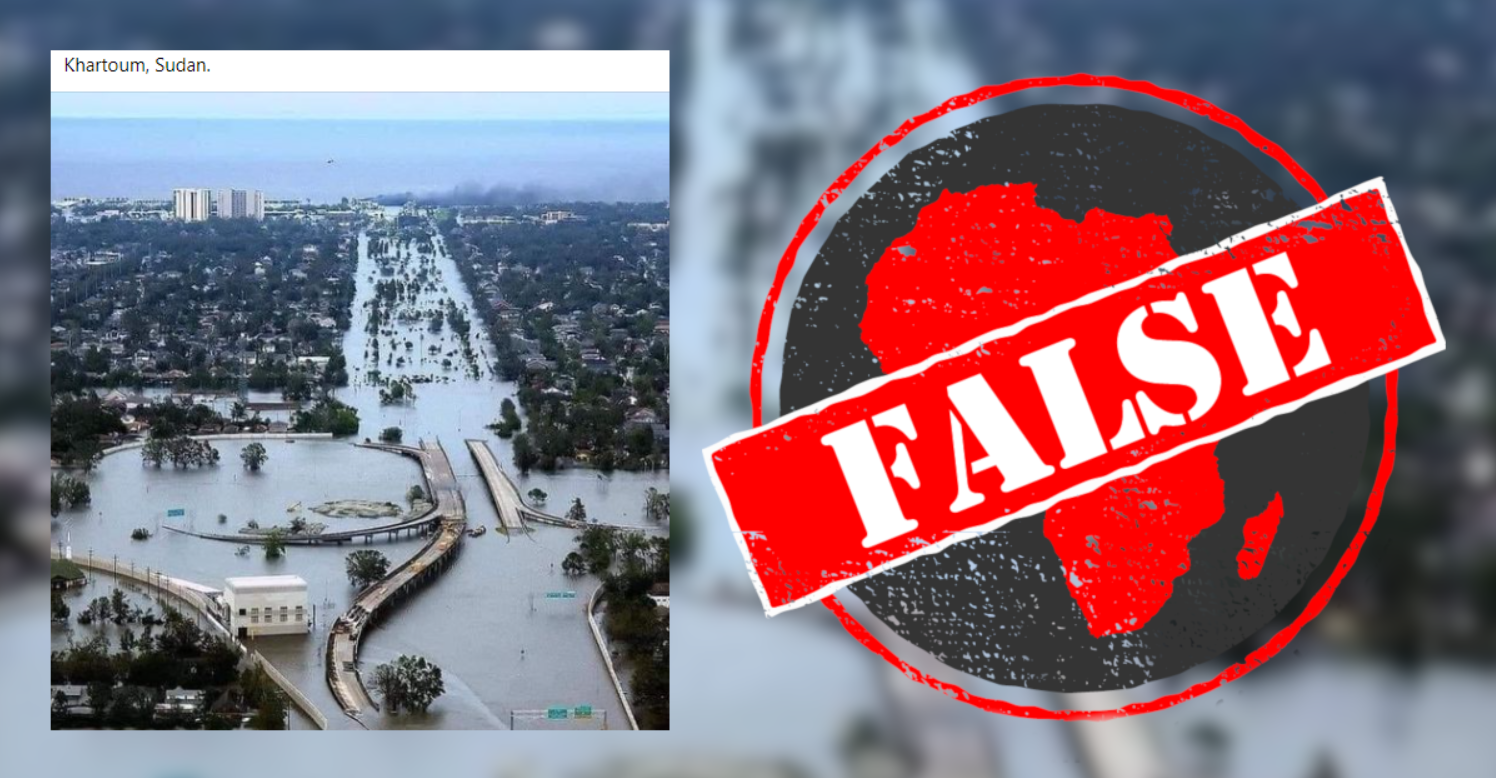A photo posted on Facebook gives an aerial view of a flooded city, with buildings and roads submerged in water. Its brief caption identifies the city as Khartoum, capital of the North African country of Sudan.
Posted on 10 September 2020, the photo has been shared more than 1,100 times. But is it recent, and is it of Khartoum?

A reverse image search reveals that the photo is more than 15 years old and from another continent.
It’s in the Getty Images collection of stock photos, dated 29 August 2005 and credited to the US Coast Guard. It shows the aftermath of Hurricane Katrina in New Orleans, a city in the southern US state of Louisiana.
“Flooded roadways can be seen as the Coast Guard conducts initial Hurricane Katrina damage assessment over flights August 29, 2005 in New Orleans, Louisiana,” the caption reads.
The tropical cyclone is said to have been the costliest natural disaster in US history.
Hugely destructive flooding in Khartoum was reported in early September 2020. Across Sudan, the floods have displaced about half a million people. This disaster has been extensively covered by international media.
But this photo is from 2005 and of another catastrophe. – Dancan Bwire
Posted on 10 September 2020, the photo has been shared more than 1,100 times. But is it recent, and is it of Khartoum?
Aftermath of Hurricane Katrina
A reverse image search reveals that the photo is more than 15 years old and from another continent.
It’s in the Getty Images collection of stock photos, dated 29 August 2005 and credited to the US Coast Guard. It shows the aftermath of Hurricane Katrina in New Orleans, a city in the southern US state of Louisiana.
“Flooded roadways can be seen as the Coast Guard conducts initial Hurricane Katrina damage assessment over flights August 29, 2005 in New Orleans, Louisiana,” the caption reads.
The tropical cyclone is said to have been the costliest natural disaster in US history.
Floods in Sudan displace more than 500,000 people
Hugely destructive flooding in Khartoum was reported in early September 2020. Across Sudan, the floods have displaced about half a million people. This disaster has been extensively covered by international media.
But this photo is from 2005 and of another catastrophe. – Dancan Bwire
Republish our content for free
For publishers: what to do if your post is rated false
A fact-checker has rated your Facebook or Instagram post as “false”, “altered”, “partly false” or “missing context”. This could have serious consequences. What do you do?
Click on our guide for the steps you should follow.
Publishers guideAfrica Check teams up with Facebook
Africa Check is a partner in Meta's third-party fact-checking programme to help stop the spread of false information on social media.
The content we rate as “false” will be downgraded on Facebook and Instagram. This means fewer people will see it.
You can also help identify false information on Facebook. This guide explains how.


Add new comment